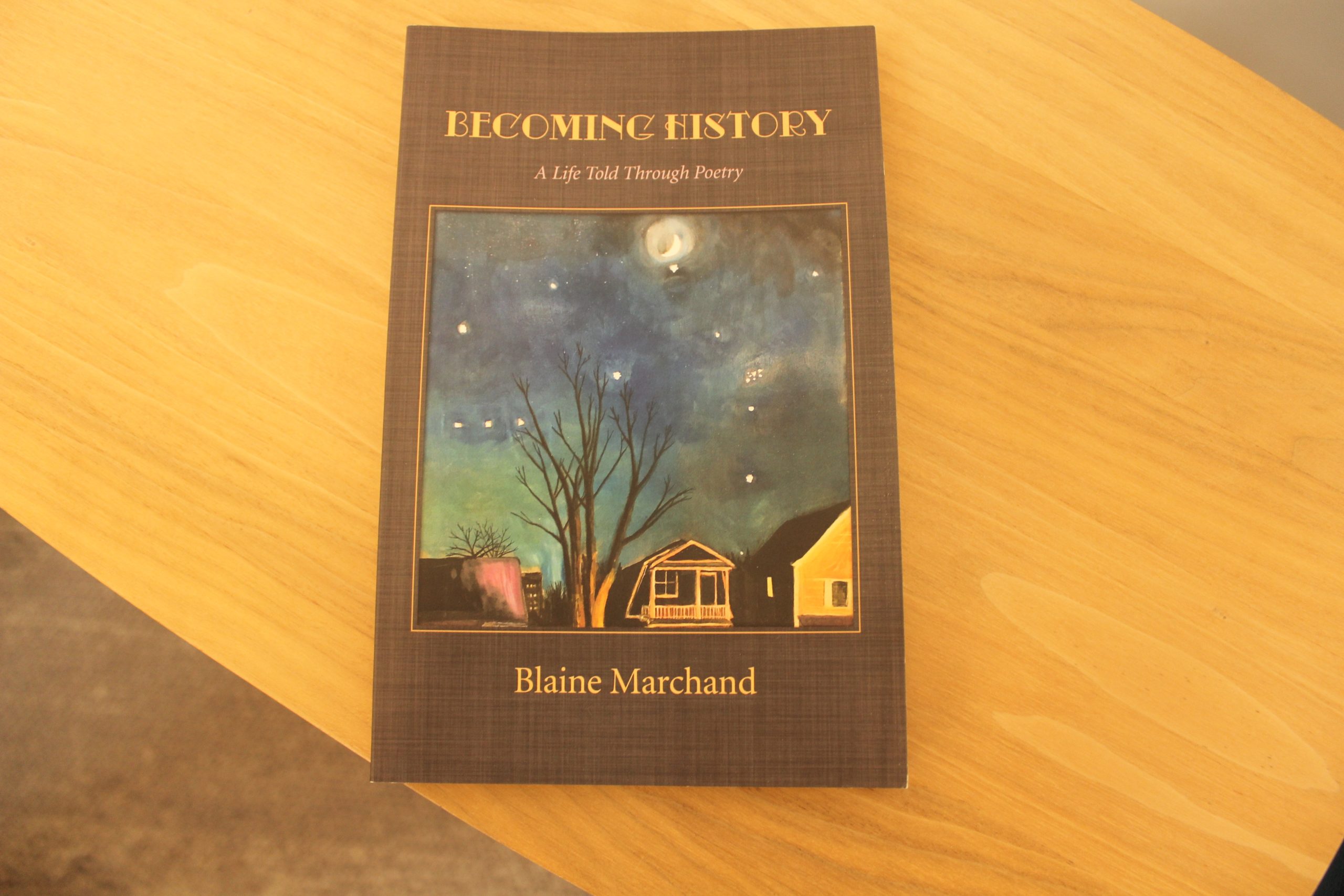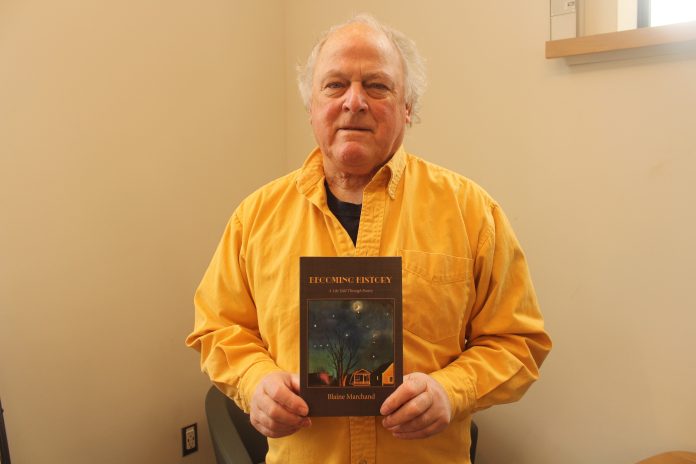By Barbara Sibbald
Seventy years of a rich and storied life in Hintonburg unfold through the eyes of a local poet, and his mother, who lived to be 103. Becoming History: A Life Told Through Poetry, is Hintonburg author Blaine Marchand’s 10th book. It tells the life of a seemingly ordinary woman with extraordinary gifts for storytelling and connecting with people.
Dorothy’s compelling oral vignettes combined with Blaine’s poetry create an accessible and touching narrative that seizes the mind and heart as we get to know Dorothy and her family. We see her, feel her concerns and know her joy – the story of a positive and charming woman’s wholly realized life.
For 70 years, Dorothy lived in a modest house on Cowley Avenue, witness to the area’s transformation from Ottawa West to Hintonburg as her own life morphed from bride to the chaos and highjinks of raising eight children. The book overflows with details, such as winning 100,000 Gold Bond stamps in a radio quiz. Years pass, Dorothy was widowed and later settled in the Grace Manor — a former hospital, the one where her children were born. Once she staggered along Wellington in the throes of labour to get to there.
The book opens with a prose-poetry combination as Dorothy recalls her early years interleaved within the layers of family and places. The second part features Blaine’s poetry as he harkens back to his earliest memories. This is from Equations: “I’m learning to add and subtract, but don’t like numbers. I prefer the thrill of sounds pooling into words the way rain glides into puddles, filling a page with sentences, stories.” – p.56
The voices in the third section are shared, with Dorothy reminiscing about her childhood.
“Often when people get elderly, the past becomes very vivid,” said Blaine. “And because I visited her every day and was interested in her stories, she would talk to me.”
Dorothy had a “phenomenal” memory and was a born storyteller, often acting out the scenes. In addition to her first-hand accounts, Blaine had collected family documents, including the letter from his uncle introducing himself to his sister. These artifacts and stories combined to “trigger vivid memories and imagery,” Blaine said.
Dorothy’s positive outlook and charm, belied her rocky start in life. Her parents separated immediately after her birth, leaving Dorothy and her older brother at Ottawa’s Protestant Orphans’ Home. Their maternal aunt rescued them and found a home for Dorothy with an Irish family who doted on “their” youngest child.

After graduating from high school at the Rideau Street Convent, Dorothy worked for the Charles Ogilvy department store, eventually managing women’s sporting wear and going on buying trips. “She attracted attention and warmth,” says Blaine. “There was something about her that people were drawn to.” She loved the work, but quit when she married Edmour Marchand, eventually settling in Hintonburg in 1943. She died in 2016.
Hintonburg is still Blaine’s turf as he practices the art of poetry. Equations is his seventh collection in a string of books starting in 1980. A new book, Promenade, is nearing completion. His poems appear in 24 anthologies and he has published a children’s novel and the guide book Ottawa, A to Z. He won the Archibald Lampman Award for Poetry and was second in the 1990 League of Canadian Poets’ National Poetry Contest.
Blaine was co-founder of two literary journals as well as Ottawa Independent Writers and the Ottawa Valley Book Festival. Nationally, he was president of the League of Canadian Poets.
His writing is all the more remarkable given his 30-year career with what was formerly the Canadian International Development Agency, which frequently took him abroad, latterly as a diplomat to Pakistan. After every foray he returned to his Warren Street home, where he has lived for over 40 years. He retired in 2011.
Becoming History has sold more than a thousand copies, which is remarkable for a Canadian book of poetry. Blaine credits a large family buying numerous copies, but it is more than that.
In endorsing the book, local historian Dave Allston (who, as a child, was Dorothy’s neighbour) wrote that it “is not just the story of one woman’s life; it is a memorial that evokes thoughts and feelings borne from our own experiences.”
Above all else, it is a poetic elegy, a celebration of a “long and lucky,” albeit not so easy, life and a testament to a son’s love for his mother.
